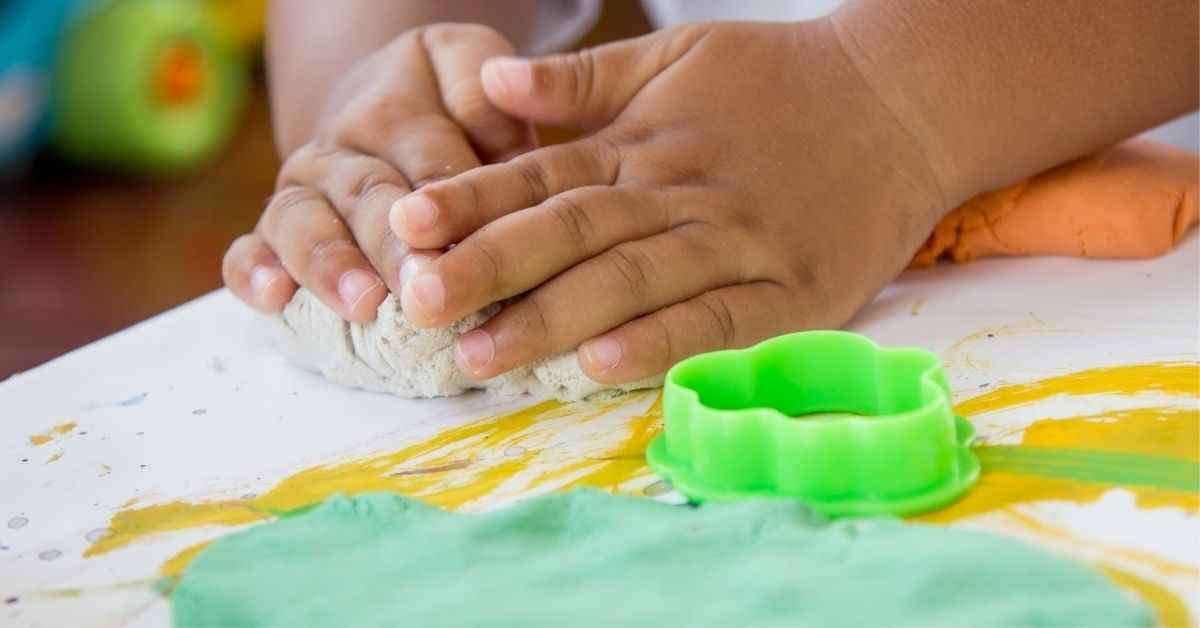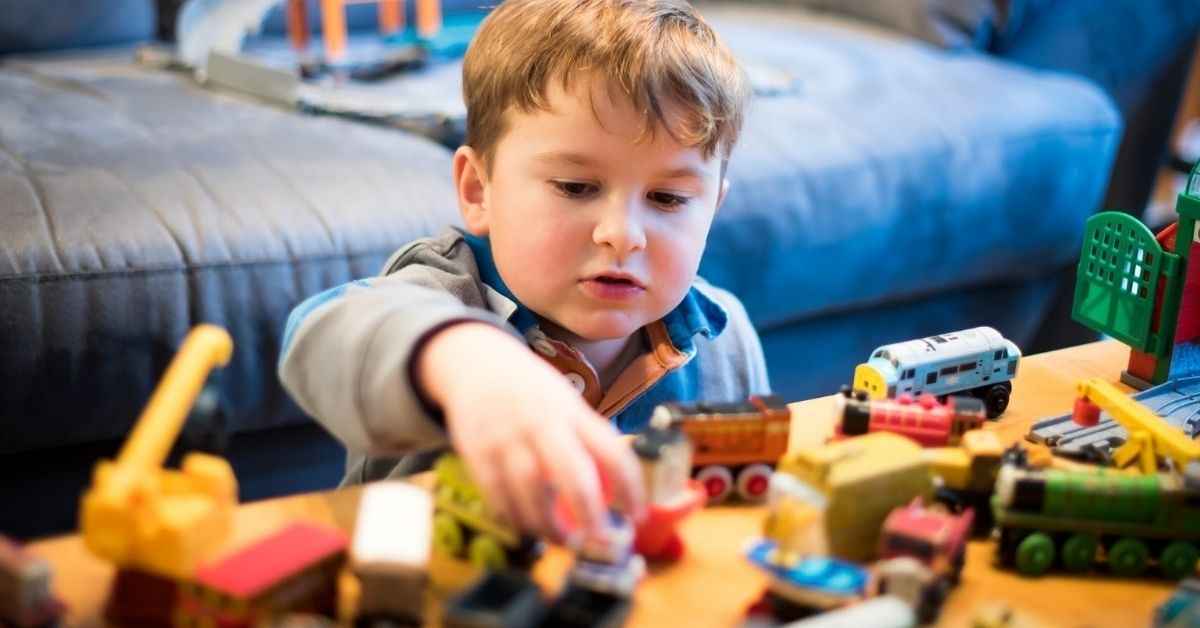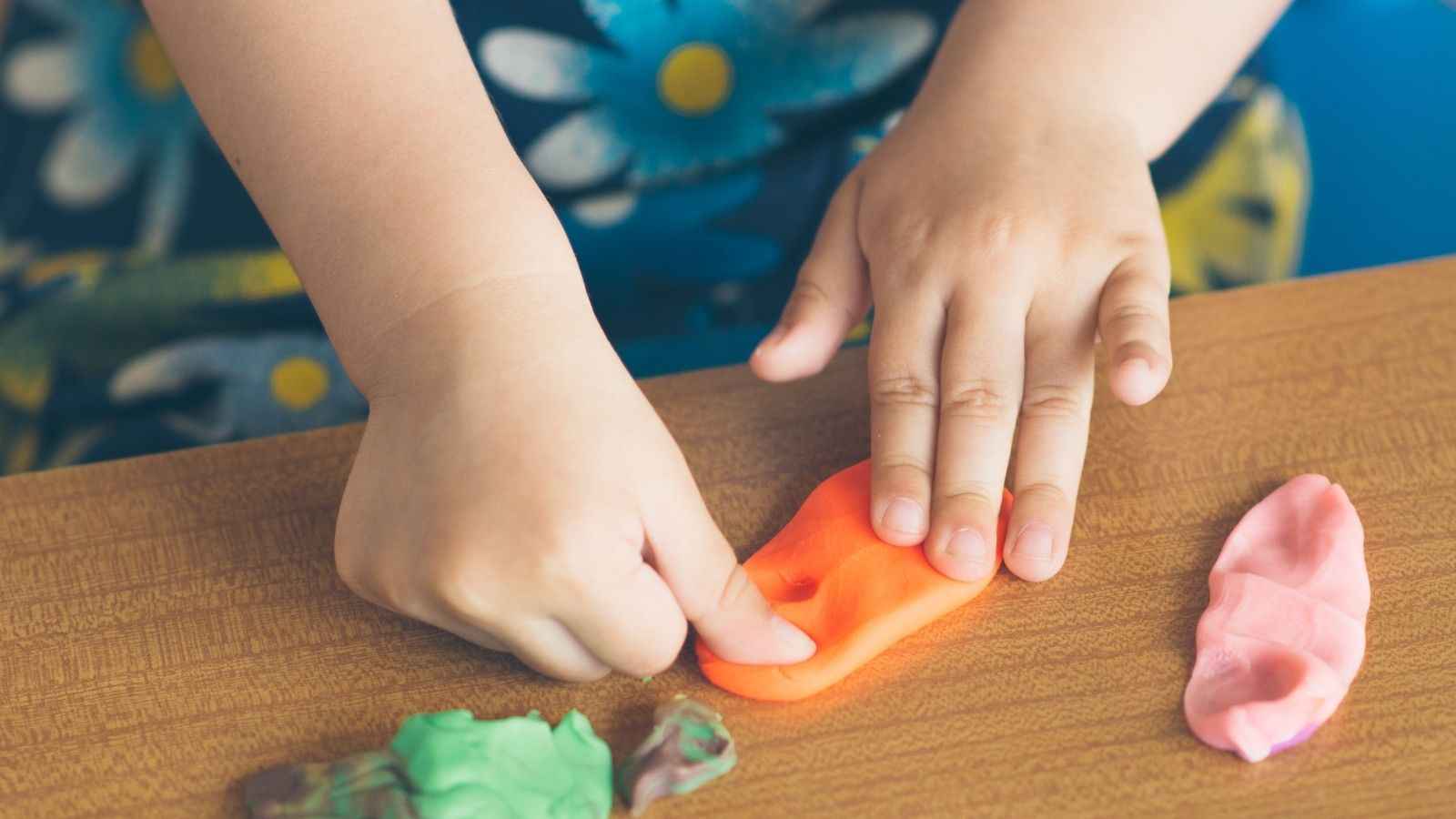Reviewed By Pamela Kirkpatrick - Senior Accredited NCS & Registered Member MBACP Adv. Dip.
What is Play Therapy?
21 April 2021
Play Therapy is a form of therapy which uses 'play' as a means of self-expression.
Jemma is a BACP registered Play Therapist with a Masters Degree in Play Therapy through Leeds Beckett University. She has 10 years of experience working therapeutically in various settings, including primary schools.
What is Play Therapy?
Play Therapy is a form of therapy which uses “play” as a means of self-expression.
Children play instinctively and use play to learn, communicate and make sense of the world around them. You just have to walk past a park or a toy shop to see that play and imaginative thinking is at the heart of childhood.
In children, the right brain (responsible for creativity, emotions and imagination) develops earlier than the left brain (responsible for logic, analytical and rational thinking).
So asking a child to “talk” about their feelings is asking them to do something which their brain is simply not mature enough to do just yet. We know that riding a bike or tying your shoe laces requires a level of maturity, logical thinking and a lot of practice. And the same goes for emotional learning!

Sometimes children have difficulties or experiences in their lives, which are too complex for words and they can feel stuck. Play Therapy with an experienced therapist can help to process feelings in a safe, gentle way using play as the language
Why would my child need Play Therapy?
This is suitable for children aged 3-12, but it may also benefit some older young people. Reasons for referral include but are not limited to:
- Emotional and behavioural difficulties
- ASD/autism
- ADHD/ADD
- Loss or bereavement
- School issues
- Family separation
- Relationship issue
- Bullying
- Trauma
What does Play Therapy involve?
It takes place in a specialised play room with carefully chosen resources including art materials, sand tray, puppets, musical instruments and dress-up. These resources encourage open-ended play (play without rules or directions!), where the child is free to explore at their own pace.
The therapist’s role is to create a warm, welcoming environment and an open door for the child to tell their story. Through the relationship with the therapist, the child can feel safe to explore their inner world through play. The therapist listens, and over time, invites the child to explore and experiment with new ways of being through play.

How many Play Therapy sessions is expected?
A medium to long-term intervention, as it works at the unique pace of the child and cannot be rushed. Often children need a minimum of 12 sessions to form a trusting therapeutic relationship with their Play Therapist. However, some may need much longer to process complex issues.
What are the benefits of Play Therapy?
As a result of coming to the Therapy, parents and teachers often notice outward changes in the child. Unfavourable, need-seeking behaviours often give way to more functional ways of coping with feelings. Many children leave therapy with a stronger sense of self and are better equipped to deal with life’s challenges.
If you’re interested in exploring Play Therapy further, be sure to search on our Find Help Near Me page using the keyword “Play Therapy” or explore wider family support options.
Get Inspired Further
emotionally connect couple
How to deepen your relationship and emotionally connect with your partner, including practical tips.
the importance of healthy relationships
Stephen Maginn shares his thoughts and advice on how and why it is important that we look after ourselves and our relationships, especially given the added pressure at this time of year. He shares some fabulous services & online resources that can help get your relationship back on track.
baby brain development
If you’re an expectant or newborn Parent, you might have heard the phrase “the first 1,000 days”, which refers to a child’s life from the moment they’re conceived until their second birthday. During this time, a baby’s brain undergoes a significant period of development.



